"It's kind of a family feud", 3.5-year crisis in the GCC

Donald Trump, President of the United States (US), considers lifting the blockade on Qatar a priority in his last 70 days in power. This his national security adviser Robert O'Brien told the 2020 Global Security Forum. The blockade, imposed by Saudi Arabia, the United Arab Emirates (UAE), Egypt and Bahrain, has been called a crisis within the Gulf Cooperation Council (GCC) and has been going on for 3.5 years. The big question is: can the crisis really be resolved with US help? To answer this, we will first have to look at what exactly happened.
Tunisian parties fight each other out of parliament
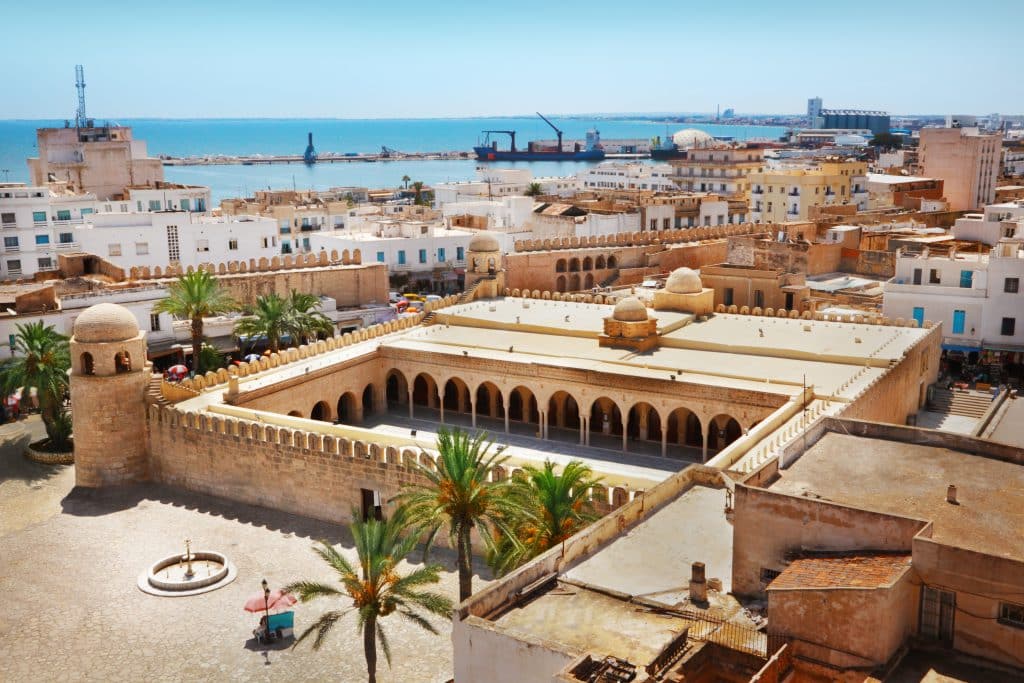
Less than a year after the parliamentary elections and five months after a new government took office, Tunisia is in a fierce political crisis. The prime minister has resigned, the speaker of parliament is awaiting a vote of no confidence, and all this while the country anxiously awaits an IMF deal to revive the economy.
'Country of the week' - Tunisia
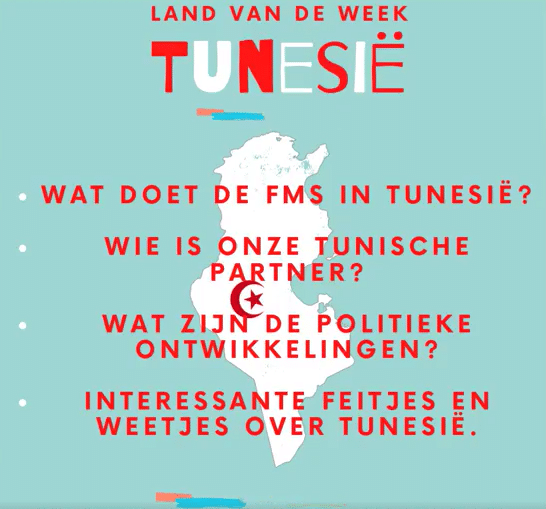
What exactly does FMS do? Where are you active? Who are your partners? Every week we will answer all these questions and more in our new initiative: 'Country of the Week'. Each time, we will highlight one of the countries in which we operate and highlight what we do there through videos, fun facts and stories from our projects! This week: Tunisia!
In conversation with MP Kirsten van den Hul on the international approach to coronavirus
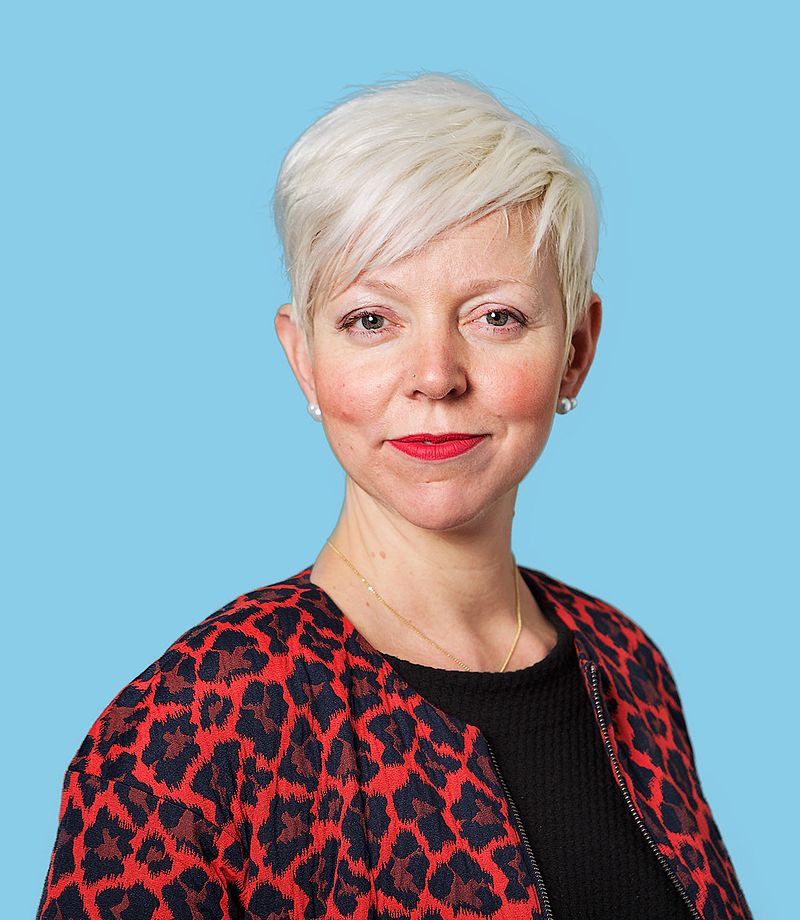
On Thursday 24 April, the FMS spoke with PvdA MP Kirsten van den Hul - spokesperson for Foreign Trade and Development Cooperation - about the international fight against the coronavirus and its impact on countries in Africa (and other developing countries). What is the Netherlands' role in this?
Political Cafe Iraq; shifting puppets won't help, another game is needed
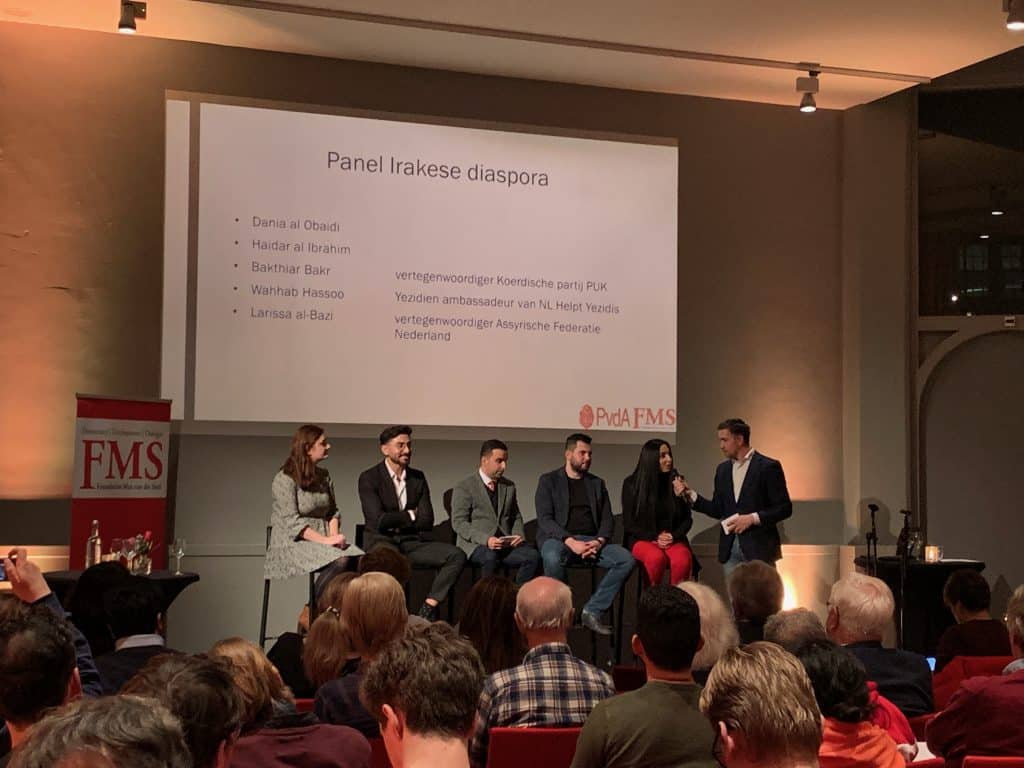
Fierce protests have been raging in Iraq since October. On top of that, in early January, Iranian general Soleimani and Iraqi militia leader Muhandis were liquidated by the US in Baghdad. These events are highly likely to have major implications for Iraq and the region. Therefore, it was a good time to discuss them with politicians, experts and members of the Iraqi diaspora! In a well-filled room in the Muntgebouw Utrecht, the Political Café on Iraq took place on 23 January, led by moderator Kido Koenig. A very interesting evening with a nice musical interlude and an active audience looking at the situation and future of Iraq from different perspectives.
Women from the MENA Region: How female leadership improves human rights
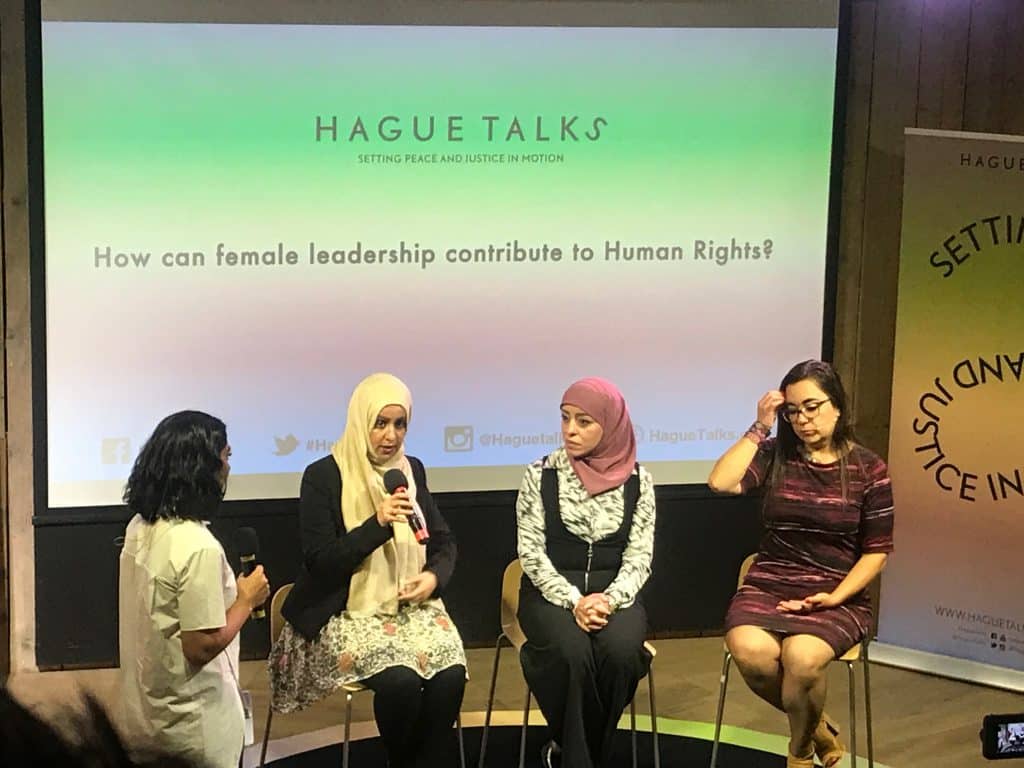
We can't be all that we can be, but we can become what we want to be." This was one of the striking statements during Hague Talks on women's leadership and human rights on Wednesday 18 September. Women are gaining attention and a more important role in improving human rights both in Europe and in the Middle East and North Africa, and this event is a result of that. On the Wednesday evening, led by moderator Sahar Shirzad, three women from the MENA (Middle East and North Africa) region spoke consecutively with personal stories about their experiences in improving human rights. Concrete answers on how women's leadership contributes to human rights improvement were not given, instead the three women told their (life) stories.
Surprising election result heralds sweeping change in Tunisian politics
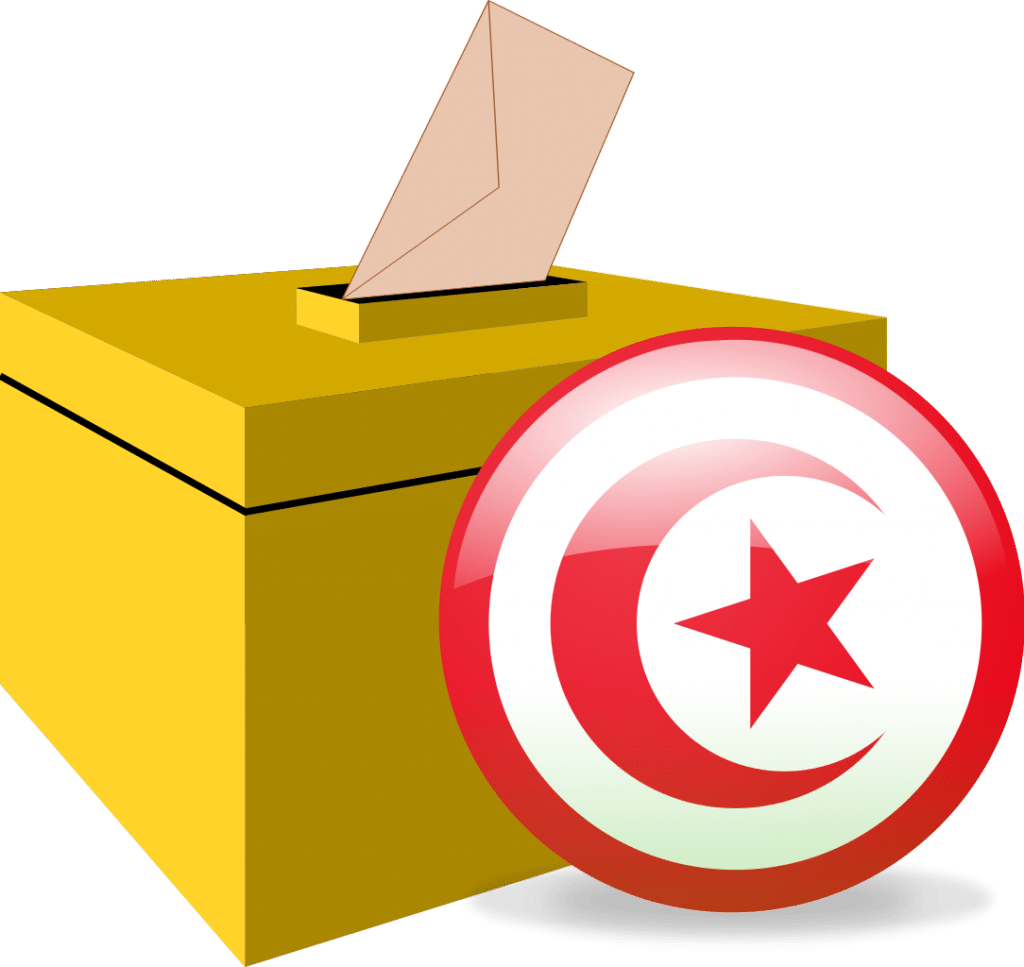
After the preliminary results of Tunisia's presidential elections started trickling in on 15 September, a shock wave went through the political elite that has ruled the country for the past few years. Two anti-establishment candidates, Kaïs Saïed and Nabil Karoui, received the most votes with 18.4% and 15.58% respectively. As a result, a second round, on 13 October at the latest, is needed to determine a final winner. The result appears to be not just a defeat for the ruling parties, but a rejection of the entire political structure by the disgruntled population, which has been plagued by economic stagnation and corruption.
Photo report Future Leaders training
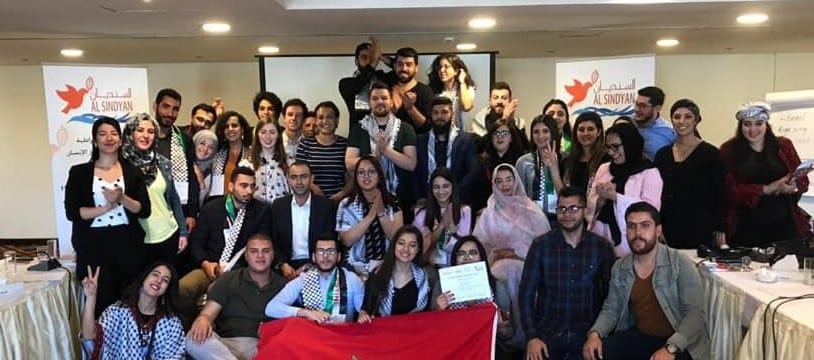
Last weekend marked the start of a new cycle of the Future Leaders project for political activists from the Middle East and North Africa. More than 30 participants from Morocco, Tunisia, the Palestinian Territories, Lebanon and Jordan came to Amman for an intensive 3-day training in social democracy, campaigning, political communication and debating.
Get involved! Women empowerment in Morocco
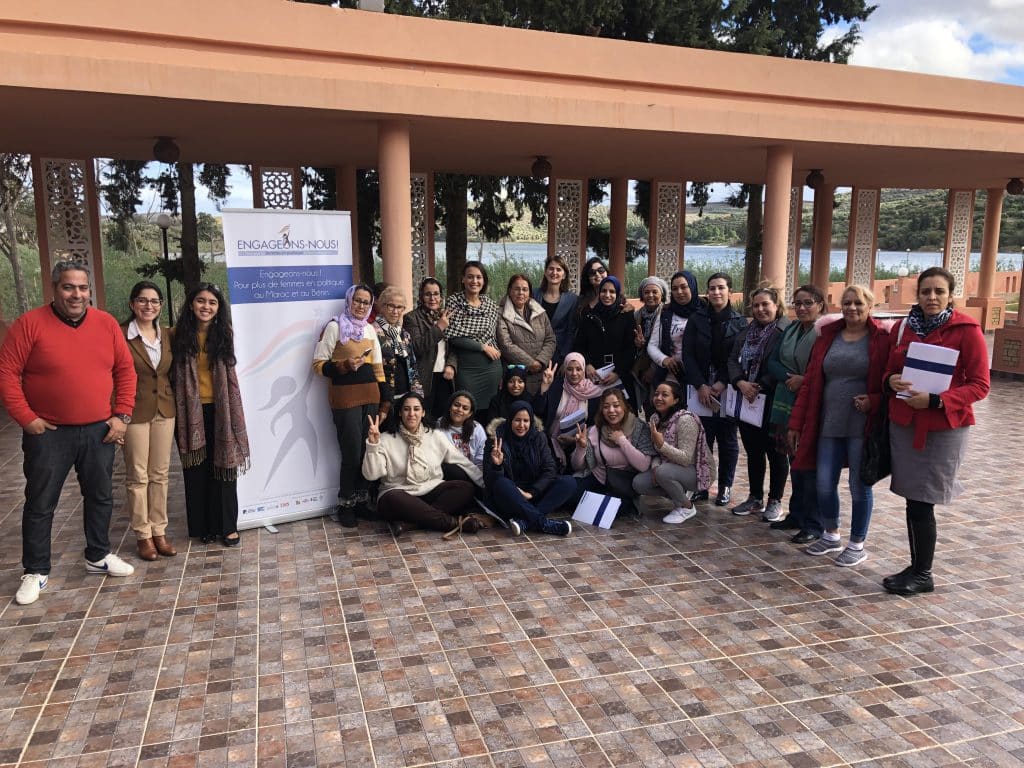
Did you watch any of the election debates during the last Provincial Council elections? Then you must have noticed: lots of men in suits. We currently have only a few female party leaders in the Netherlands. Not only that: women occupy only 46 of the 150 Lower House members, are underrepresented in top positions and are still paid less in the same positions. Fortunately, many projects exist to change this. A well-known example is 'Vote for a Woman', an initiative to promote women's political emancipation and representation. As a result, last election, 42 women were elected with preferential votes. But there is still a world to be won, even though women have been allowed to stand for election for more than 100 years.
Political protests and migration: is there a link?
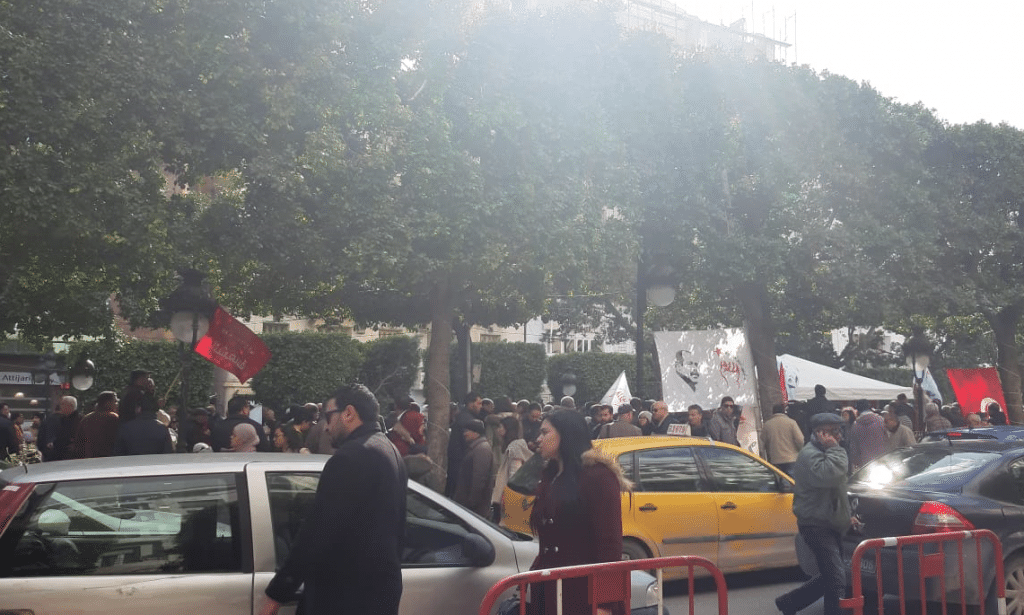
A surprise move in Algeria two weeks ago. On Monday 11 March, 82-year-old president Abdelaziz Bouteflika announced that he would not seek a fifth term. At the same time, he cancelled the elections which would take place on 18 April. Citizens in Algeria have protested his candidacy since February. Bouteflika is rarely seen in public since suffering a stroke in 2013. Some commentators link the recent protests in Algeria with the Arab Spring protests of 2011. It is not surprising then, that there exists fear of increasing numbers of Algerian migrants wanting to flee towards Europe.

